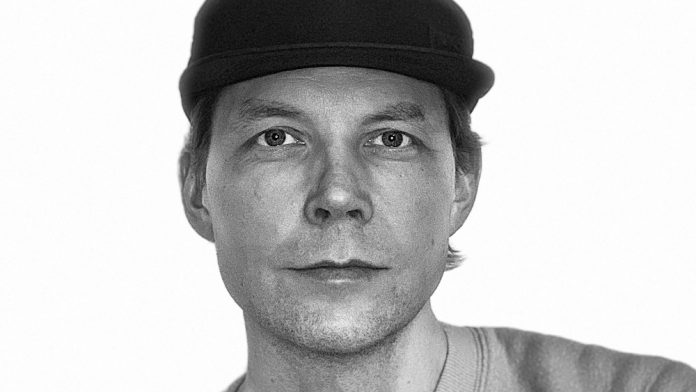Rights holders and content creators should hold a presence further up the funnel on social platforms, said Antourage CEO Johan Junker.
Junker explains why Antourage is on a mission to fix a ‘broken system’ where social media companies remain the greatest beneficiaries of the relationship that rights holders and content creators have with their fans.
He also discusses the emergence of the Web 3.0 era, better reflecting the wants and needs of the fan, who then gets more of a participatory role for which they can be rewarded.
The Antourage platform, he believes, makes that possible by moving social media content onto the owned & operated (O&O) where you’re now able to create more meaningful and sticky relationships.
SBC: Firstly, what is Antourage? What is your technology? And what are you solving?
JJ: So, I’ll start with why we’re here as I think that’s pretty important for people to understand. We are here to fix what we think is a broken system. Social media companies are currently the greatest beneficiaries of the relationship that rights holders and content creators have with their fans. Essentially, we’re on a mission to change that. In terms of what we’re doing, we have built a media platform that enables rights holders to develop and monetise rich fan communities and we’ve seen some great results so far.
We want to take your fanbase off the social platforms, where you are essentially handing over all your first party data to a third party and giving up all the control over the relationship that you could have with your fan, and we’re bringing them to the owned & operated (O&O). So, what we’re really doing is redefining what O&O channels are.
SBC: Why should rights holders and brands, particularly betting companies, be creating content on their own channels and why should we keep beating that drum?
JJ: Well, the thing is they’re already creating content, they’re just doing it in a way that is very one directional. Frankly, the current system doesn’t make any sense for the fan because it means they spend all day long consuming and interacting with the social platforms, like TikTok, Snapchat, Facebook, and Instagram rather than the rights holders, who are sitting on the genuinely interesting assets. However, today, they are handing over all their content and access to interesting personalities to the social platforms.
The reason for doing that, of course, is to achieve the reach; however, we’ve seen in the last few years reach on social platforms is going down and engagement rates are as well. So, when they hand over the rights to their digital properties, they’re also putting their fan relationships at the mercy of the performance of the social media platform, which they really don’t have to do.
As for brands, including betting companies, we see how much poorer sponsored posts perform on social media. There is so much noise that its super hard for brands to engage with the audiences they are after. Even harder still for betting brands. Pulling these audiences into an owned experience on your own channel or that of a sports team that you sponsor, suddenly gives you the control and much more authority. We’ve seen much greater conversion and fan engagement as a result.
READ MORE: LOOKING TO EUROPE: HOW SPORTSBOOKS AND SPORTS RIGHTS HOLDERS CAN BETTER ACTIVATE THEIR PARTNERSHIPS
SBC: Okay, so you started to touch on it there, but why do anything on the O&O?
To answer your question, I must first say that the O&O channels will change significantly in the next few years. Currently, they’re putting out their articles and one directional, traditional content, which doesn’t make any sense.
At the beginning when we started the company, the hypothesis was really that social media content would work on a proprietary channel like a website or an app that belongs to a club or a league, because that’s the kind of content that people are consuming.
However, we realise that the fans that are consuming this content want to be able to support, interact, and participate. As a result, we now enable that through an easy to integrate technology which we call a ‘plug & play social experience’ that you can fire up in just a few hours on your O&O channels. And the good news is that it works.
SBC: It’s fair to say, then, that content creators with clubs and rights holders, or companies reliant on their social media channels are not seeing the benefits they deserve?
JJ: Yes, I would say so. Personalities are driving the interest in media today, some of them very successfully. However, the issue is that, even if they’re really successful like Logan Paul or Kim Kardashian, they still don’t control that relationship. I think that’s a big problem as their work, which is the content that they produce, is essentially being handed over to a third party when they publish it, which makes it difficult for them to further monetize it.
This is all going to change, though, and the transition will be accelerated by trends we are seeing emerge in what is called the Web 3.0 era. For example, we will see an increasing ability for creators, IP owners, rights holders, to really let the fans in almost like shareholders. This will look something like a phantom share scheme, where a fan feels like they have ownership and have a participatory role for which they can be rewarded.
This could be easily applied to even small content creators or IP owners’ media projects. And the other interesting thing we’re seeing now with the emergence of Web 3.0, is seeing applications that are built on the blockchain.
SBC: How can this participatory fan engagement, if I can use your phrase, be harnessed as we continue to move towards Web 3.0?
JJ: I guess in anything you do you’re always competing for people’s time. Essentially, people are spending their days doing things, and you want them to be spending that time with you. However, social platforms want to generate as many impressions as they can per second to feed their advertising business models, that’s how they monetize. As a result, they have no interest in fans seeing a video for more than a couple of seconds.
This is at odds with the wants of the fan. Fans are not interested in generating impressions, they want to be engaged. The Antourage experience makes that possible by moving social media content off the platforms and onto the O&O where you’re now able to create meaningful and sticky relationships. This is why you see such high dwell times in Antourage and this is also how you win the war of attention.
Especially now with the emergence of Web 3.0, there is going to be a lot of opportunities for anyone that has a following online to do a lot of interesting things where the entire community can benefit from it and where you can monetise and control those relationships to an extent we haven’t seen before during the Web 2.0 era.
SBC: In some ways the definition of loyalty then changes to be more about enabling community?
JJ: That’s exactly right because in order to be successful as a creator you also need to take responsibility for your community – if you don’t do that, they’re not going to be happy and they’re going to leave – And there are plenty of examples of that happening within sport.
In the new world, you will be able to have a direct relationship – more of a peer to peer relationship – with your fanbase and that takes them to a whole other level in terms of participating in what you’re doing.
In the new world there is going to be a more meaningful relationship where the user is turning into a participatory consumer or member of the community where they have a say and they have a personal interest in the club that they love or the creator that they follow has a private economy.
I think that’s a really interesting shift that we see now where you can very easily create a content vehicle that your community has an interest in. Even a small content project in the next few years will be able to “go public”, in a sense, without actually doing an IPO.
SBC: So, if we were to do away with all these numbers and metrics used on social media channels, now that we’re instead building these new communities, what numbers matter, going forward?
JJ: I understand fully that there’s an industry out there already, so I’m not suggesting that you get off all the social platforms. I would never say that. I believe there is a need for rights holders and content creators to be there, too. However, I believe that their presence on social platforms should be further up the funnel. So, in terms of views and engagement metrics, I guess they will still be important.
My problem with them is that engagement rates are calculated incorrectly and are misleading. An engagement rate would suggest that the audience is engaged, however, in reality, they will count even if you scroll on a social platform’s feed and “watch the video” for less than a second or two. That is not engagement to me, even if you can make money from it. I don’t think this is a sustainable business model for the future.
SBC: It’s a false economy in some ways…
JJ: Exactly. Web 3.0 and new protocols will essentially enable you to build a different business model because suddenly you have machines that can hold money and currency just like machines can hold your emails, so you don’t have to send a letter in the mail anymore – it’s the same thing that we’re seeing here.
This opens to a lot of interesting opportunities for legendary sports brands and the creators that are gathered around those sports brands because they can work together, cross pollinate, build out rich communities that are interactive and hang out with one another and share the same passion points. I think that’s where the world is going in the next few years.
SBC: We talk about machines, however, one thing that drives passion, loyalty, community building, is actual human emotion. Storytelling is still going to be at the very core of any individual club, company, rights holder, agency, isn’t it?
JJ: Yeah, correct. This is tied to different protocols, and it runs in a different way and that’s the interesting part here because the design of incentives is changing.
There will be a movement from being an internet influencer that is posting things on a third-party platform and handing over the ownership to crypto IP owners and crypto creators that will be able to keep that digital property and ownership of that digital property.
If we fast-forward a few years, I’m pretty sure this will happen. This would enable creators to not have to start a clothing line or lipstick company in the offline world to monetise their relationships on social media. Now, they can just do what they love, which is create videos and win sports games that they are competing in and report to the world through new platforms that will emerge, but still maintain the ownership of that digital property.
That’s a complete game changer, not only for the IP owners, the creators, the teams, and the leagues, but also for the community, because then they can start participating.
We have already seen this ever since the emergence of new devices, and especially since the iPhone was launched. Before the iPhone, you didn’t have to be online, you could have an offline word, go to an internet café and you check your email and pay somebody $0.50 or something to do so. However, post the era of the iPhone, you really must be online to live your life. It’s impossible to do things if you’re not online these days and we’ve seen that change happen in only 14 years. 2007 is when I got my first iPhone, I think.
Of course, things were not mature at the time of the iPhone launch but in the last decade or so we’ve seen legislation loosen up. For example, Kickstarter projects mean people are now able to invest in things that they love. We will see the same thing within sports communities, where fans want to be part of the club that they love, and want to feel like they are invested.
Instead of standing at the gates and screaming and shouting and not knowing what the hell is going on inside the castle walls, they can now take part in that as a result of everything moving online. We have new ways of creating scarce, intangible digital goods, and anything on the future Web 3.0 protocol will be unique and that’s a really important piece here as that enables entirely new business models for the guys that we’re working with.
SBC: And finally, what are you most bullish about for the future?
JJ: Well, I’m bullish about being able to distribute the wealth that you can create in a community all the way out to the very nodes of that community. I think that’s what’s happening now and will happen more and more over the next couple of years.
It’s not going to be a very slow transition but it’s also not going to happen overnight. I think that’s really important for people because in the offline world you want to participate – you don’t want to stand in the corner on your own and you want to have ownership of your relationships. There is no way we would give up some of the things that were giving up online in the offline world.
As everything moves online, as it has been doing ever since the launch of the iPhone, we will hopefully be on course for a global society online where people can participate and get involved with one another and develop their own knowledge of other cultures etc. So, I really believe that there are a lot of good things that come with this new era that we’re moving into.














